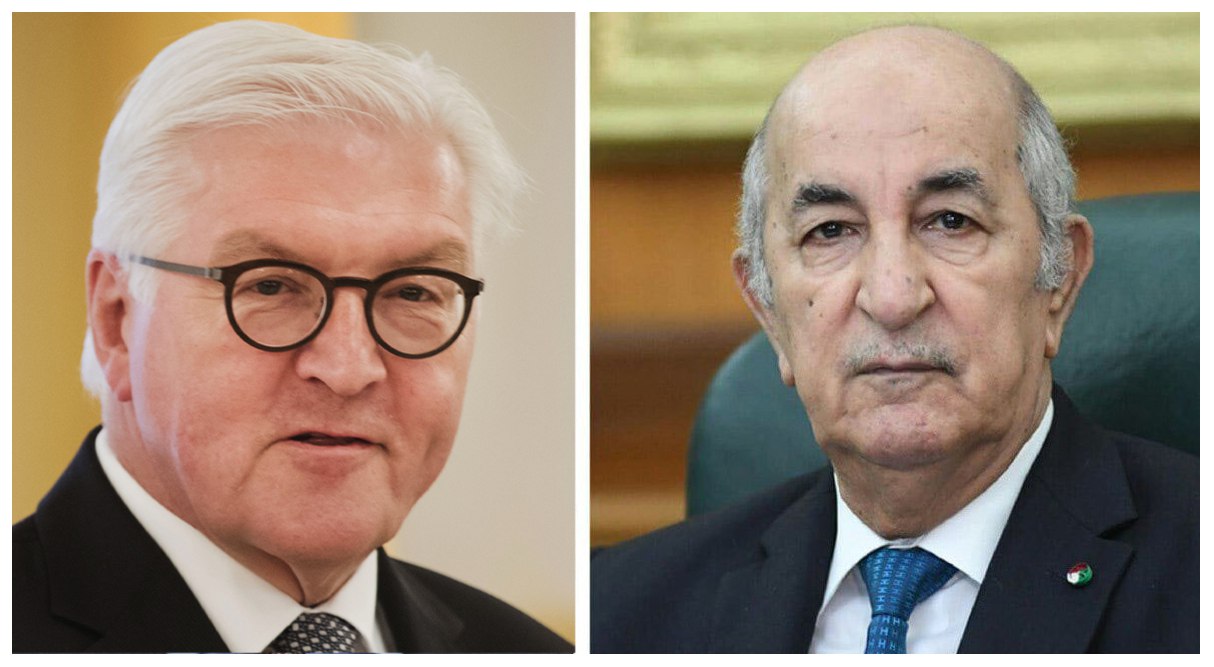In the context of the energy crisis Germany is facing as the result of sanctions imposed on Russian energy exports due to the ongoing war in Ukraine, there have been growing contacts between Algerian and German officials, focusing on the importance of raising the level of bilateral relations. This was reflected in German President Frank Steinmeier’s telephone call on October 5 with his Algerian counterpart Abdelmajid Tebboune, in which he confirmed Berlin’s desire to raise the level of its relations with Algeria.
Both Algeria and Germany are set to make gains by strengthening bilateral relations: Germany’s international is significant to Algeria, and Algeria’s gas resources are important to Germany. Germany also recognizes the complex situation in the Maghreb region concerning the Sahara issue, and the escalating tensions between Algeria and Morocco in this respect. During the telephone call between Steinmeier and Tebboune, the German President expressed Germany’s support for the role of the United Nations envoy to the Sahara, and also commended Algeria’s role in establishing peace and stability in the region and throughout Africa.
Algeria on its part is currently searching for a new European ally following its suspension of its Treaty of Friendship and Cooperation with Spain, against the backdrop of Madrid’s change of position on the Sahara issue. The level of trade between France and Algeria has also fallen, as shown by the decline in Algeria’s French exports in 2020 to some $3.4 billion, as a result of widening disputes over several issues. Paris has however started to take steps to improve relations again, as reflected by France’s Prime Minister Elizabeth Borne’s visit to Algeria on 9 October, accompanied by about half of her government’s ministers.
Positive statements by Algerian officials revealed a desire to deepen relations with Berlin. For example, Algerian President Abdelmajid Tebboune, speaking with German magazine Der Spiegel, had expressed his view that there are many possibilities for cooperation between Algeria and Germany, and major potential partnership projects between the two countries.
Germany’s growing concern over developments in the Libyan crisis also seem to have prompted the expansion of cooperation with Algeria, given the latter’s role in the crisis. Berlin may be trying to encourage Algeria to intervene, and exert pressure on Libyan parties to engage in new rounds of dialogue and reach an agreement on holding elections.
Mutual benefits
The development of relations between Algeria and Germany can be said to bring mutual benefits to the two states, most notably:
Securing Germany’s gas needs: The escalation of the war in Ukraine, and the need to replace Russian energy exports is an important factor driving Berlin towards strengthening relations with Algeria. From Berlin’s perspective, Algeria presents an attractive option, due to its geographic proximity to Europe, as well as the ease of the transportation of gas through pipes. This makes gas imports from Algeria significantly cheaper than liquefied gas that requires giant tankers to transport it.
Regaining German influence in Africa: Germany is seeking to restore its role on the African continent, and it seems to be trying to leverage its developing relations with Algeria as a means to this end. In this context, German Chancellor Olaf Scholz visited a number of countries on the continent from 22 to 25 May 2022, including Senegal, Niger and South Africa. Berlin seems to have realized that a decline in its presence on the continent could have negative repercussions on its interests. As France withdraws its military presence in West Africa, Germany feels it must strive itself to fill the resulting vacuum. Russia’s expanding presence in Africa could undermine European interests there, given the growing differences due to the Russian-Ukrainian war.
Reducing US pressure on Algeria: Algeria has been facing escalating US disapproval as it continues to increase cooperation with Russia. These pressures were reflected in the demand by 27 members of the US Congress last September 29, for Foreign Minister Anthony Blinken to impose sanctions on Algeria under the Fighting America’s Enemies through Sanctions Law, because of its arms deals with Russia. By cooperating with Germany, Algeria may be sending an indirect message to Washington that it has potential resources for international support if US pressure increases.
Strengthening bilateral military relations: As Algeria seeks to diversify its sources of military imports, Germany is seeking new markets for its arms exports, and the two are likely to strengthen this convergence of interests. The German government, last August 31, granted new permits for the export of arms to Algeria, according to a letter sent by the German Ministry of Economy to the Economic Commission of Parliament. Under this approval, Algeria will acquire 102 vehicles to guide weapons in Fox-armored personnel carriers produced by Wittenstein Motion Control Corporation.
Algeria is hoping to gain Germany’s endorsement of its own positions on many regional and international issues as bilateral relations strengthen, thereby benefitting from Germany’s influence on European scene. But there are significant challenges ahead, including growing relations between Russia and Algeria. Moreover, France’s efforts to overcome its recent differences with Algeria may also place constraints on the latter’s ability to move very close to Germany.


